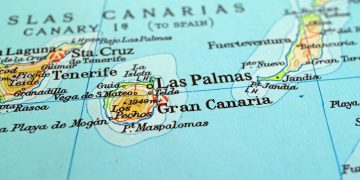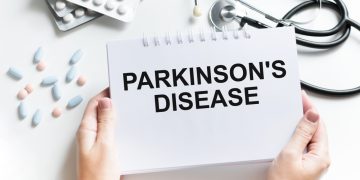8th meeting of CGPCS WG 2
 BIMCO was represented at the 8th meetingof Working Group (WG) 2 of the Contact Group on Piracy off the Coast of Somalia (CGPCS), which took place in Copenhagen on 21 June.
BIMCO was represented at the 8th meetingof Working Group (WG) 2 of the Contact Group on Piracy off the Coast of Somalia (CGPCS), which took place in Copenhagen on 21 June.
At the meeting, more than 100 participants from 38 countries and several international organisations discussed a number of pertinent issues, including legal aspects of the use of armed guards and modalities for the possible establishment of specialised Somali anti-piracy courts.
Developments since last meeting
States and organisations reported on recent developments with regard to national prosecution of suspected pirates, recent piracy incidents, lessons learned in court cases, human rights considerations, bilateral agreements and national procedures on disposition of suspected pirates.
A number of states (Japan, India, Germany, Seychelles, Belgium, The Netherlands, USA, Tanzania, Yemen, Spain, Denmark, Puntland and Somaliland) reported on status in ongoing prosecutions. Denmark, Japan and Tanzania provided information about their recent efforts to establish comprehensive national policies and procedures relating to piracy cases.
Information was also provided by the International Maritime Organization (IMO), the UN Office on Drugs and Crimes (UNODC), the UN Development Programme (UNDP), the UN Department of Political Affairs (UN DPA), and the EU on their efforts to counter piracy, including through capacity building and increased regional cooperation. UN DPA provided an overview of the operation and status of the Trust Fund to Support the Initiatives of States to Counter Piracy off the Coast of Somalia.
The Trust Fund, which supports activities relating to prosecution and detention of suspected seafarers as well as other actions implementing activities of the Contact Group, is also open for private contributions. UNODC provided an overview of the number of prosecuted pirates, showing that 1,035 persons are currently being prosecuted, or have been prosecuted, for piracy in 20 countries.
Unfortunately, it had apparently not yet been possible to collect statistics on the number of suspected pirates that had been released by naval vessels without being prosecuted and the reasoning behind these decisions.
Reference was made to the recent Conference on illicit financial flows relating to piracy, at which BIMCO represented the shipping industry. During the tour de table, BIMCO and INTERTANKO informed WG 2 about industry efforts to improve evidence collection and address financial flows.
Private armed guards
The Working Group revisited the legal aspects of the use of private armed guards on commercial vessels. At its last meeting, it was agreed that this is mainly an issue for WG 3 on industry matters, but that legal issues arising from discussion in the other working groups could be channelled to WG 2.
A number of issues were raised, including questions relating to the UN Convention on the Law of the Sea (UNCLOS), rules of engagement and issues of responsibility and liability, which should be taken into account when considering the possibility of employing private armed guards on board ships.
During the ensuing discussion, a broad variety of legal questions were raised, including the relation between the responsibilities of the Master of a vessel and the private armed guards on board, liability issues in relation to excessive use of force, and whether vessels carrying private armed guards in other states’ territorial waters can be considered in innocent passage pursuant to UNCLOS.
IMO presented the recently issued interim guidance to shipowners, ship operators, and shipmasters on the use of privately contracted armed security personnel (PCASP) on board ships in the High Risk Area and interim recommendations for flag states regarding such use. T
he Working Group agreed that the issue of use of private armed guards was legally challenging and needed to be looked further into. For the next meeting of WG 2, the Chairman undertook to develop a list of legal issues that may be relevant for states to consider in relation to the use of private armed guards.
Ensuring prosecution
UN OLA presented the UN Secretary-General’s follow-up report to UN Security Council Resolution (UNSCR) 1976(2011) on piracy. The report, which concerns the modalities for the possible establishment of specialised Somali anti-piracy courts, concludes that piracy trials are currently being conducted by courts in Somaliland and Puntland and, with UN assistance, these trials are expected to reach international standards in around three years. In this period, the total cost of UNDP and UNODC assistance in relation to the courts and prison facilities is estimated at approximately USD 24.5 million.
The report also concludes that it is currently not possible to determine a timeline for the establishment and functioning of a specialised piracy court outside Somalia. Such a timeline would depend on the views of the concerned states and relevant regional authorities, the need for a Somali constitutional and legislative basis for such a court, the need for an adequate criminal and procedural basis in Somali law for piracy prosecutions, the need to negotiate a suitable agreement with a host state to regulate all matters associated with the functioning of the court, and the need for sufficient prison spaces to international standards, ideally in Somalia.
According to the report, a key question would be whether the extraterritorial court should have jurisdiction to prosecute large numbers of low level perpetrators of acts of piracy, a more limited number of financiers and planners of piracy, or both. Consultations conducted by UN OLA indicate that investigation and prosecution of financiers and planners of piracy would be a strategically effective and cost-effective means of supplementing current prosecution efforts.
WG 2 agreed that the Secretary-General’s follow-up report provided increased clarity of the different options, but also that there was a need for further discussion. It was noted that the options for specialised courts were not mutually exclusive, but that some of the options required the adoption of Somali legislation, which made it crucial to take into account Somali views.
As the Working Group does not have the competence to make any decisions as such on this issue, it is up to the UN Security Council to decide the way forward. USA agreed to prepare a discussion paper for the next meeting of WG 2, which would deal with the legal issues in regard to piracy financiers and leaders operating ashore, in order for the Working Group to have a discussion on this topic.
Under the agenda item dealing with challenges to prosecution, Interpol made a presentation on evidence collection and analysis efforts. IMO in this connection presented the guidelines on evidence collection agreed at the 89th session of the Maritime Safety Committee.
Incarceration – post trial transfer
The Working Group continued its discussions on the issue of transfer to Somalia of pirates convicted in other countries. The Chairman presented two Memoranda of Understanding (MoUs) on post trial transfer between the Seychelles, on the one side, and Somaliland and Puntland respectively, on the other. These two MoUs supplement an already existing agreement on post trial transfer between the Seychelles and the Transitional Federal Government of Somalia.
The required next steps would be the passing of national legislation on transfer in Somalia, Somaliland and Puntland and the establishment of the necessary prison facilities, including provision of adequate financing. UNODC provided information on its Piracy Prisoner Transfer Programme, which aims at enabling transfers of piracy prisoners convicted in other states to Somalia by ensuring human and secure prison conditions in Somalia.
The outcome of the WG 2 meeting will be communicated to the Contact Group at its next meeting on 14 July in New York with a view to deciding the way forward.
UN Security Council meeting on 21 June
Members should also be informed that the UN Secretary-General’s follow-up report to UNSCR 1976(2011) was discussed at a meeting of the UN Security Council on 21 June. According to a news release from the Security Council, the UN Under-Secretary-General for Legal Affairs, Ms. O’Brien at the meeting outlined the legal options contained in the Secretary-General’s report and the one by his former Special Adviser on Legal Issues Related to Piracy off the Coast of Somalia, Mr. Jack Lang, on how Somalia and the international community can legally step up counter-piracy efforts.
On the modalities of establishing specialised anti-piracy courts inside Somalia, Ms. O’Brien referred to the help provided by UNDP and UNODC to local authorities in Somaliland and Puntland with a view to building the capacity of the local courts to try piracy cases.
On the option of establishing an anti-piracy court outside Somalia, Ms. O’Brien told the Security Council that Somalia’s Transitional Federal Government and regional administrations were not in favour of having a Somali court outside the country’s borders. The Security Council has not yet taken any official decision as a result of the follow-up report and the presentation on 21 June by the Under-Secretary-General for Legal Affairs.
Members will be kept informedregarding developments.
Source: BIMCO































































